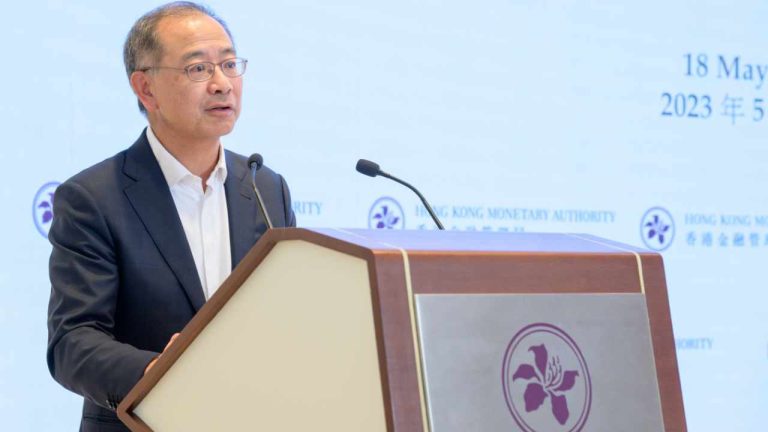
The Hong Kong Monetary Authority (HKMA) has announced the commencement of its e-HKD pilot which “will take deep dives into potential use cases in six categories.” The pilot paves the way for “the possible implementation of a retail central bank digital currency (CBDC),” the central banking institution explained.
Pilot Program for e-HKD Begins
The Hong Kong Monetary Authority (HKMA) announced Thursday “the commencement of the e-HKD Pilot Programme.” The central banking institution revealed that 16 firms from the financial, payment, and technology sectors have been selected to participate in the first round of e-HKD pilots for 2023. The HKMA detailed:
The pilots will take deep dives into potential use cases in six categories, including full-fledged payments, programmable payments, offline payments, tokenized deposits, settlement of Web3 transactions, and settlement of tokenized assets.
“The HKMA will conduct a series of pilots in close collaboration with various stakeholders to examine the use cases, as well as implementation and design issues relating to e-HKD,” the monetary authority described, adding that it aims to share key learnings with the public at Hong Kong Fintech Week 2023 in November.
The companies participating in the pilot program include Alipay Financial Services, Bank of China, China Construction Bank, Fubon Bank, Ripple Labs, Standard Chartered Bank, Hang Seng Bank, HSBC, Visa, Industrial and Commercial Bank of China, Mastercard Asia/Pacific, and Boston Consulting Group.
Eddie Yue, HKMA’s chief executive, commented: “While the HKMA has not yet made a decision on whether and when to introduce e-HKD, we are excited to kick-start the e-HKD Pilot Programme, which serves as a tremendous opportunity for the HKMA to collaborate with the industry in exploring innovative use cases and maximizing our readiness for a potential e-HKD.”
The Hong Kong Monetary Authority published its policy stance on e-HKD in September last year as part of its “Fintech 2025” strategy. Two rounds of market consultation were conducted: one on high-level technical design and one on key policy and design issues. A total of 75 responses were received during the consultation period.
The HKMA explained at the time that it will adopt a three-rail approach. Rail 1 establishes the technological and legal foundations for the e-HKD, Rail 2 explores use cases and conducts pilots, and Rail 3 focuses on launching e-HKD based on the outcomes of the previous phases.
“The e-HKD Pilot Programme is a key component of Rail 2 under the HKMA’s three-rail approach in paving the way for the possible implementation of a retail central bank digital currency (CBDC), i.e. e-HKD, in the future,” the HKMA noted in Thursday’s announcement.
Do you think Hong Kong should launch a central bank digital currency? Let us know in the comments section below.
Comments
Post a Comment